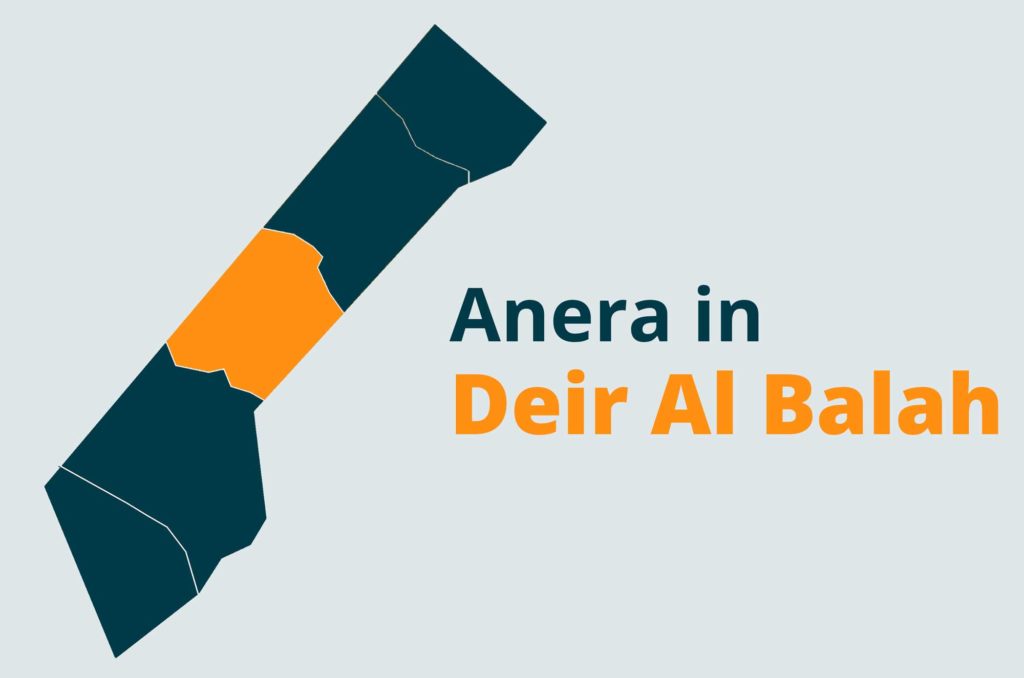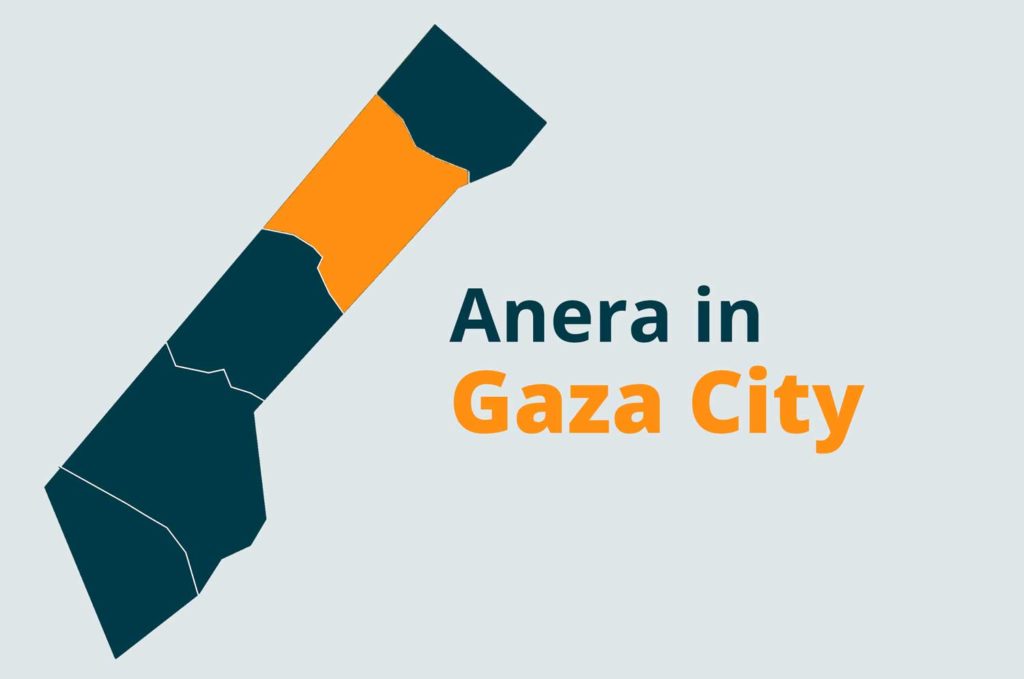Dec, 2011
Suha Abu Isa and her husband Misbah Abu Isa sit under the shade of an olive tree as they wait for their son Shaker to return home from school.
Eight year old Shaker and his cousin Hamad are all smiles as they describe their day at school and the classes they share. They have been inseparable since they were infants and since last September they have come to share a new passion: watching the plants growing in the family’s new greenhouse.
“I helped my father plant the seeds. I was very excited about that and now we see the yellow flowers. My father says they will turn into fresh tomatoes pretty soon,” Shaker said showing the leaves of the tomatoes.
As soon as they get home from school, Shaker and Hamad always dash off to check on progress inside the greenhouse, which was installed by Anera as part of its home gardens project. The program started in 2010 with 35 beneficiaries and soon expanded to include 18 more families in the Middle area of Gaza. Anera provided each family with a 67.5 square meter greenhouse, an irrigation system and water tank with a 1,000 liter capacity, as well as some compost, seedlings of tomatoes, pepper and eggplants and training in best practices.
Misbah Abu Isa explains, “I have been working in agriculture since 2000. My brother rented me a piece of land where I grew vegetables to sell and make a living.” But, the land was destroyed during the Israeli Cast Lead operation in 2009. “Since then, I have been unemployed,” he added. “When I joined the home gardens project, I used the piece of land around my house for cultivation. I am expecting to feed my family and also try to generate an income,” he added. His wife Suha added, “The school is very far way and my kids need to walk an hour and a half to get there. If we could produce food in our home garden and earn some money, we could pay for their transportation.”
Abu Isa says the best crop now is tomatoes. His children can eat one tomato with a piece of bread. “And, we can always sell tomatoes because it is the most common vegetable in our diet and our cooking ” And, he added, “When the vegetables flourish, we will also share them with our community where we have strong ties and help each other as much as we can.”
In Wadi Salqat, Zeinab Abu Moghasib says the home garden has made a big difference for her family of 15. “We were able to plant our land with tomatoes, pepper, eggplants, melons and parsley. We have the parsley ready for eating, we use in the salad and soup. It is the first crop we picked up from our new garden,” Zeinab cuts up some fresh parsley for lunch as she explains that she uses the produce first to help feed her family with the possibility of selling the surplus for income. “The whole family is happy and is following step by step the growth of vegetables. The land teaches us patience.”
Anera’s Home Gardens project reached these two beneficiaries through the local community-based organization Al Manal Society for the Rural Women Development in the Middle Area. In keeping with Anera’s overall goal, Al Manal also aims to develop rural women and improve their economic, social and cultural situation and thus enable women to participate in decision making and development of sustainable women plans. Anera also works with Society of Friends Without Borders, Society of Palestinian Framers and Society of Animal Production.


